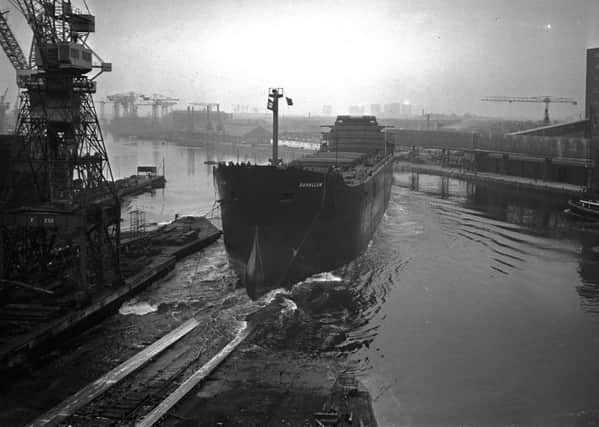Pollution from Scotland's industrial past could harbour antibiotic-resistant superbugs


Researchers from the University of the West of Scotland (UWS) and University of Strathclyde is launching a study of one of the country’s busiest waterways to quantify the role discarded heavy metals and biological waste play in harbouring dangerous infections such as MRSA and C-Difficile.
Analysis will be carried out on sediment samples taken from the Clyde, a major artery for shipping and a focus of enterprise during Glasgow’s industrial heyday.
Advertisement
Hide AdAdvertisement
Hide AdThe team will look for evidence of heavy metals, plastics and fuel residue, left behind from the days when the city was a centre for ship-building, steelworks, coal mining and manufacturing.
Parasitologist Dr Fiona Henriquez, leader of the infection and microbiology research group at UWS’s Institute of Biomedical and Environmental Health Research, said: “Antimicrobial resistant bacteria don’t just develop as a result of prescribing antibiotics. There are a whole host of environmental factors that contribute.
“In our study we will focus on the Clyde estuary, which has been subject to a wide range of pollution discharges over time, taking samples to establish the biological conditions there and determine the extent of which the industrial history may lead to the development of these stubborn bacteria.”
Experts say failure to combat antimicrobial resistance could lead to ten million deaths a year by 2050, dragging modern medicine back to the Dark Ages.
Over-prescription of antibiotics has contributed towards the development of resistant strains of Salmonella and E-coli.Evidence shows bacteria from sewage released into the sea pose a risk to the health of humans, and possibly pets.
The 18-month long Clyde project is funded by the National Environmental Research Council.
Dr Henriquez and her colleagues, Dr Roderick Williams and Professor Andrew Hursthouse from UWS and Dr Charles Knapp from Strathclyde’s civil and environmental engineering department, hope to find micro-organisms that have adapted to overcome the superbugs. “We have to look at all the angles rather than just focus on the prescription of antibiotics,” she said.
“There is a long chain of events that need to be examined – from historic industrial pollution to measuring the full impact of washing waste into our waterways.
“It is vital we take a holistic view if we are to win the battle against the bugs.”